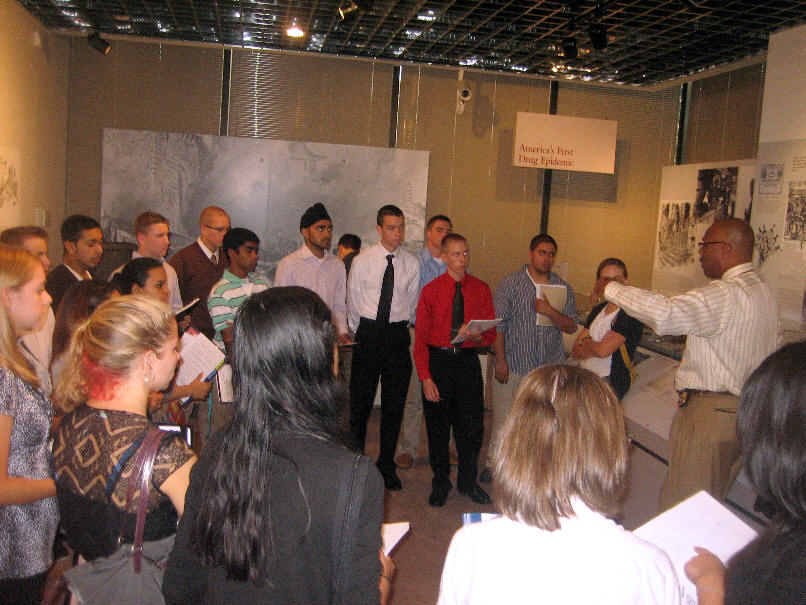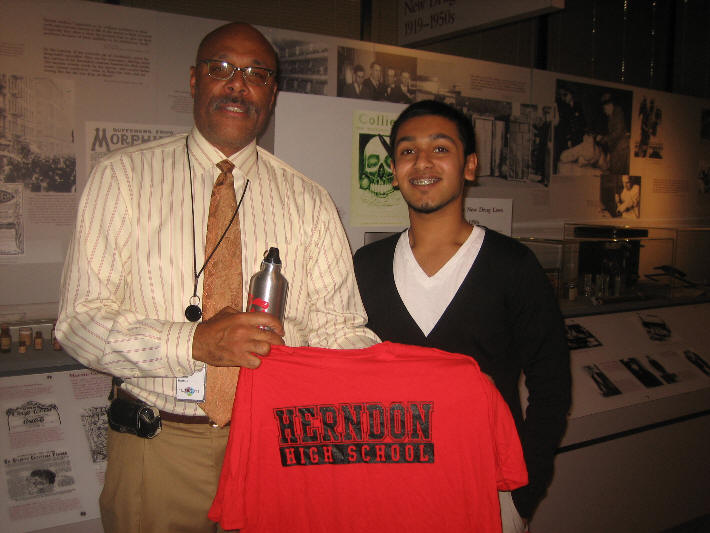
Drug Enforcement Administration Museum
"The Integrity of the DEA is Second to None"

DEA Special Agent Namen Jones participated in a fascinating Q&A with Political Science students. Azraf- "On behalf of our class, we want you to know we appreciate the efforts of the DEA and especially you for meeting with us today." This meeting took place September 29th, 2011. After our meeting students visited the 9/11 Pentagon Memorial.
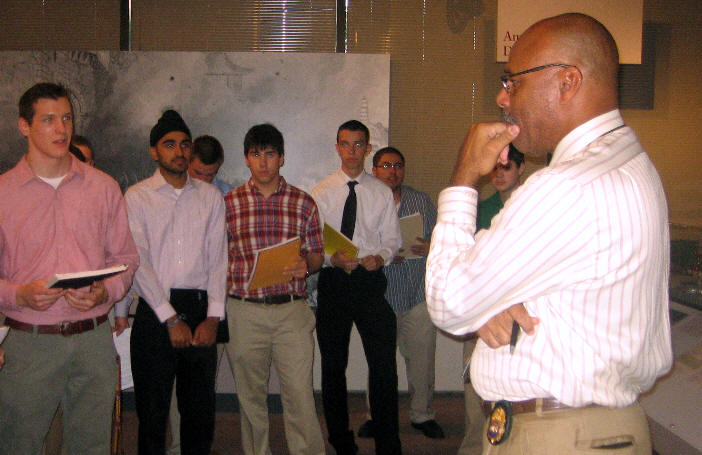
Ben (left)- Considering the success of the "Just Say No" program in the 1980's has there been any discussion of launching that again? ANSWER- It is still incorporated today but it is not as mainstream as it used to be.
Russ (2nd from left, next to Ben)- The incarceration rate suggests that drug use is not only a problem itself, but also creates other problems like over-crowding in prisons, in many cases for non-violent offenders. Please comment. ANSWER- There are federal prisons that are huge in places like Nebraska and there is room there. For everyone else there are state prisons.
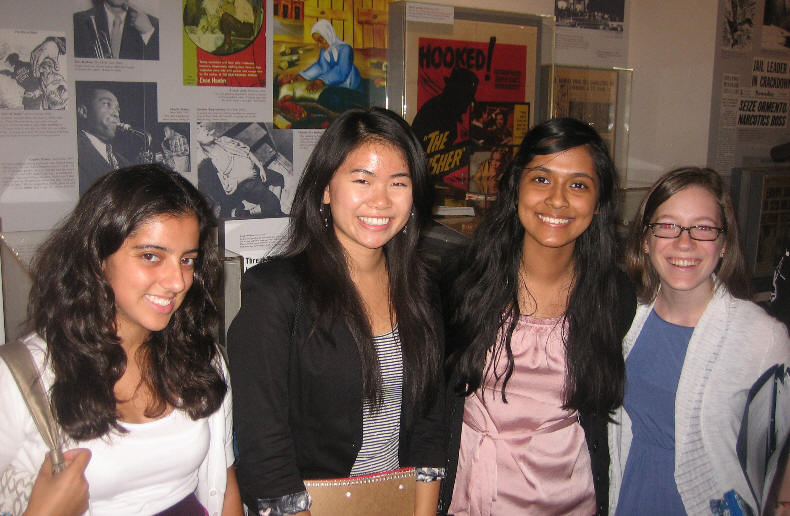
Alexis (left)- If marijuana and other drugs were legalized, how would the DEA be changed? ANSWER- We would still try to stop black-market sales because even if legalized, people would try to sell illegal versions of the drugs.
Lia (2nd from left)- Marinol, the legal version of medical marijuana, which is not smoked, is an approved prescription drug. Since that is available, why has medical marijuana become so prominent? ANSWER- Medical marijuana is essentially no different than marijuana itself. A pill form has the beneficial aspects but does not cause issues like smoking does.
Fahduma (2nd from right)- How cooperative is Mexico in an effort to stop drugs from coming into the U.S.? For example, if the DEA were wanted to use predator drones to destroy the home of a well-known drug kingpin in Mexico, would Mexico object? ANSWER- Initially they objected because of "US interference" and their own laws. However because of the extreme violence and damage drugs are causing, Mexico in recent years has become more cooperative.
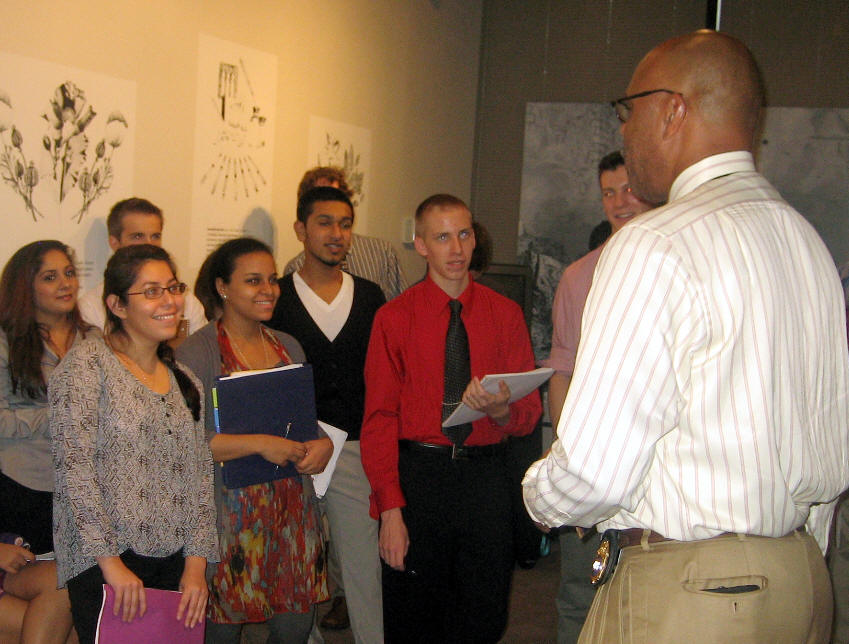
Ana (2nd from left)- In 1971 President Richard Nixon launched the War on Drugs. Are we winning? ANSWER- The war on drugs is not over but we've made a lot of progress with over 70 DEA offices all over the world. We've made a lot of improvements on trying criminals from countries that produce drugs like Colombia and having them serve time here.
Alex (red shirt)- Was the "Fast and Furious" operation flawed from design or execution? ANSWER- The case is still going on and they are working closely with the ATF to get the bad guys.
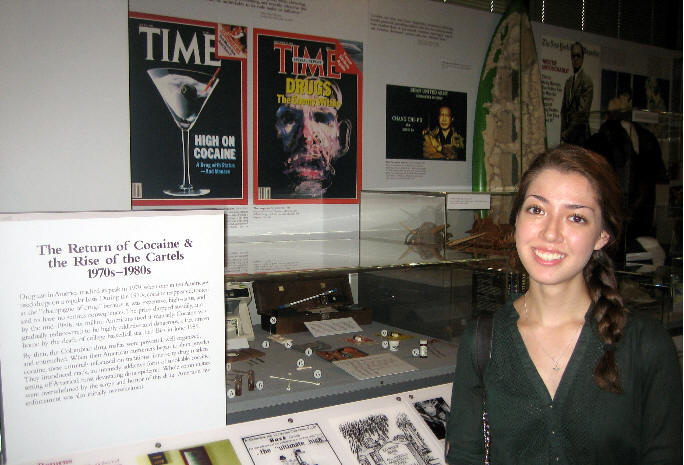
Shelbey- Mr. Graney's cousin is a corrections officer at a maximum security prison in NY State. He says that crack causes violent crime. Would you agree with that assessment? ANSWER- Yes, crack definitely causes violent crime, but a lot of drugs do too. Crack delivers andincredibly powerful high but the high lasts a short time. Therefore, crack users will continue to use it to replicate that first high and go to great lengths to do so.
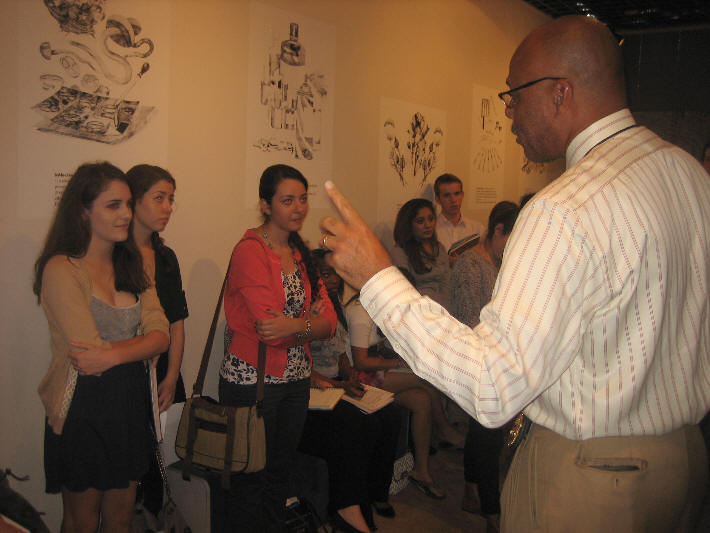
Georgia (left)- I'm wondering whether you find it constitutional to coerce suspects into confessing or revealing evidence? We saw a video where a DEA agent threatened a suspect stating a drug-sniffing dog would bite them if they did not provide information. ANSWER- I would never do something like that, "However, Georgia, I know you know who the big dealers are. If you don't tell me I'll arrest your husband because he had to know you were dealing. If I do that your kids will go to foster homes. You can avoid all that by telling me what I want to know." Of course once they're in handcuffs, we got 'em
Sandra (3rd from left)- Are there direct links from when a teen buys marijuana and the killings in northern Mexico? ANSWER- We haven't discovered a direct link because because it's hard to track the distributor for marijuana. However we can easily track cocaine because we can isolate all the chemical components and figure out if it was made in Mexico or someplace else.
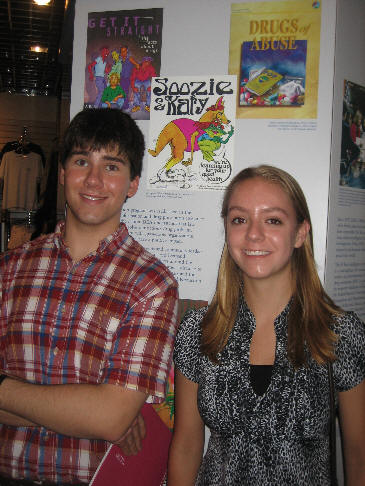
Peter- Would you enforce the law against importing Canadian prescription drugs if ordered to arrest an elderly citizen? ANSWER- No, I'm not going to chase a 90 year-old lady down the street.
Emily- What happens to the drugs and money that are seized in major drug busts? ANSWER- All of the drugs are destroyed. Money sometimes goes back to the DEA and state police.
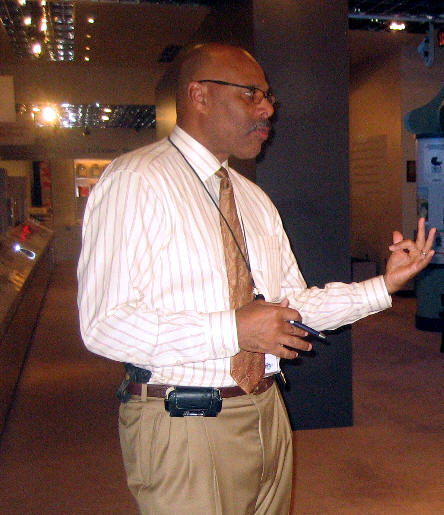
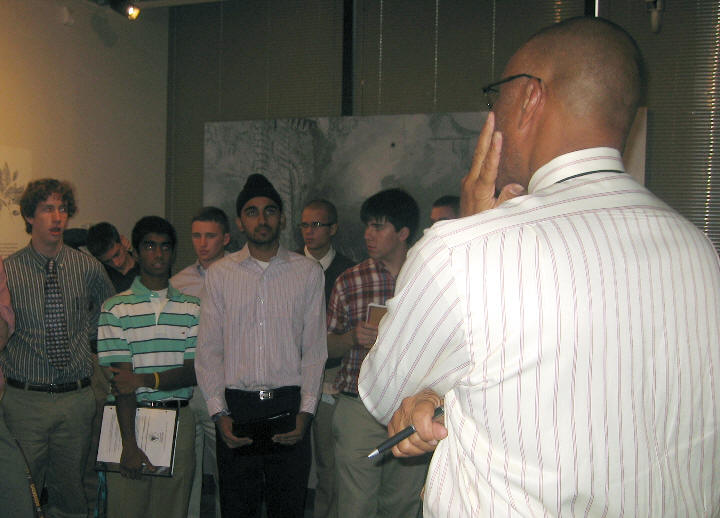
Max (left)- Considering all the money and drugs that could be available to DEA agents as they do their work, is there a large amount of corruption in the DEA? ANSWER- No. In my 23 years I have heard of one agent being corrupt. The integrity of the DEA is second to none.
Danith (3rd from left)- What do you think is the best argument against legalizing marijuana? ANSWER- It is a gateway to more dangerous drugs. It does nothing good for you and will force kids onto more dangerous drugs.
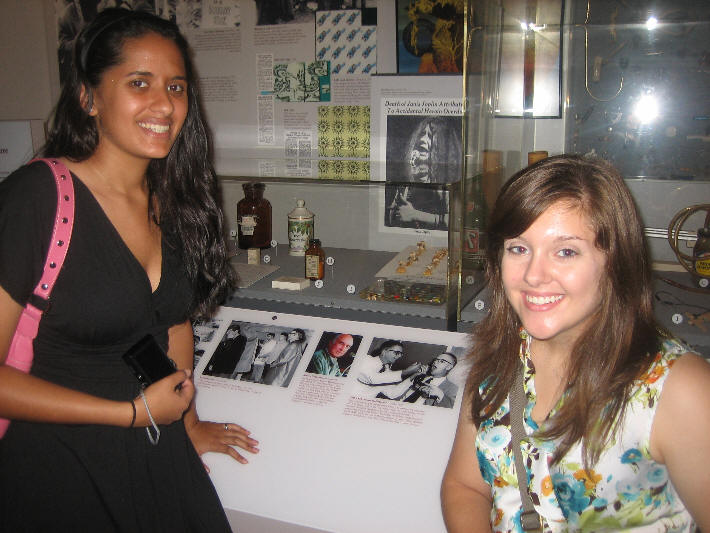
Sapna (left)- How does the DEA affect the average Americans life? ANSWER- By reducing the number of drug dealers on the streets.
Leann (right)- What does it say to you that 40 years after the War on Drugs began, my classmates said they could buy marijuana within an hour of the end of the school day? ANSWER- Lately we have been focusing on the major suppliers and not as much on the small-time high school sellers.
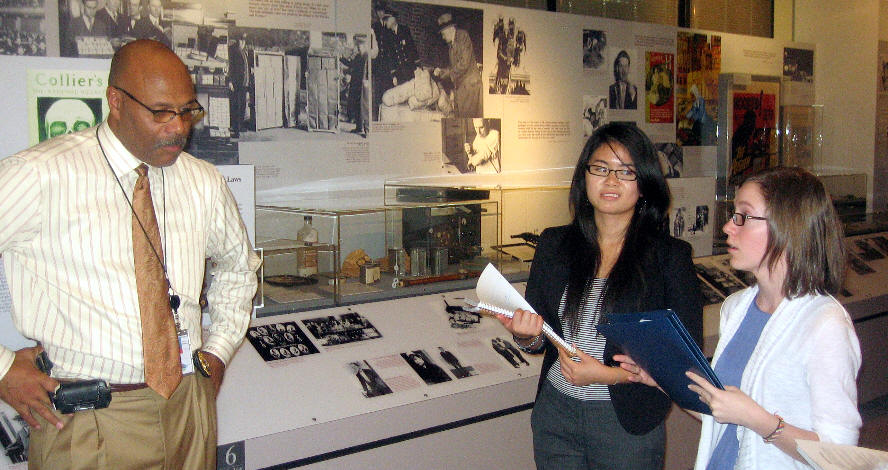
Breanna (right)- After confiscating marijuana could you resell it as medical marijuana and make a profit for the government? ANSWER- No. Every drug we get we destroy.
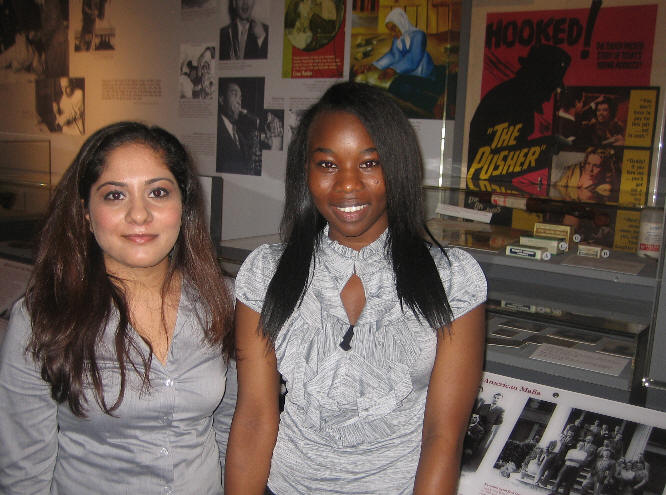
Khooban (left)- Is there anything you would want us to change about our current drug laws? ANSWER- Yes, knowing that I could put someone in jail and have stiffer consequences.
Rajaa (right)- Have you heard of any drug money going to terrorist activity not related to the drug trade? In other words would drug money from Central or South America makes its way to Al Qaeda? ANSWER- I haven't heard of such a thing but I'm sure drug money is in Mexico or other cartel countries.
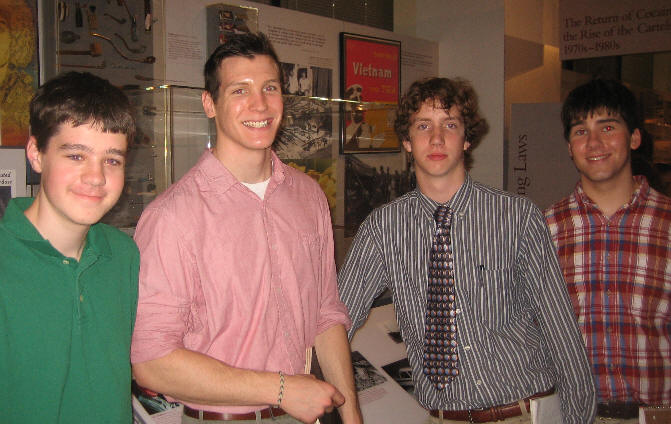
Brian (left)- How often would someone decline an offer made by the DEA agent when they are found with an illegal substance? ANSWER- It doesn't happen very often because most of the time they will want to keep their family out of jail.
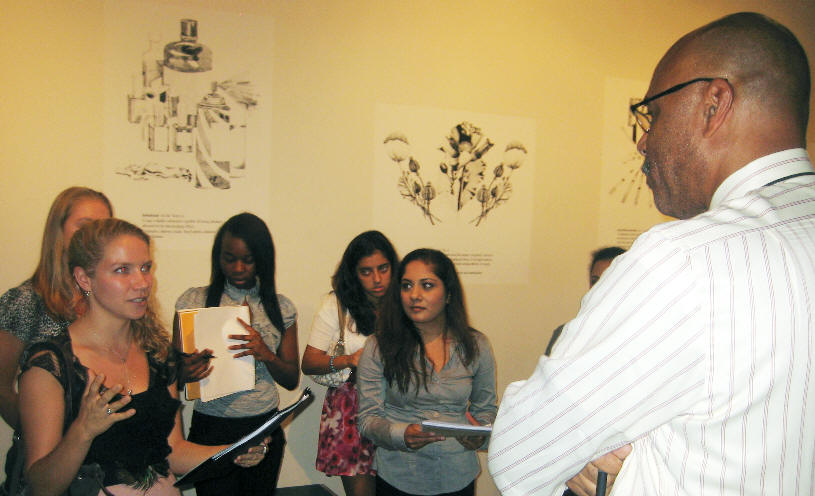
Erin- Would stopping or inhibiting the heroin production and trade in Afghanistan come back to us by way of Al Qaeda? ANSWER- No. For that to happen Afghanistan would have to agree to work with us.
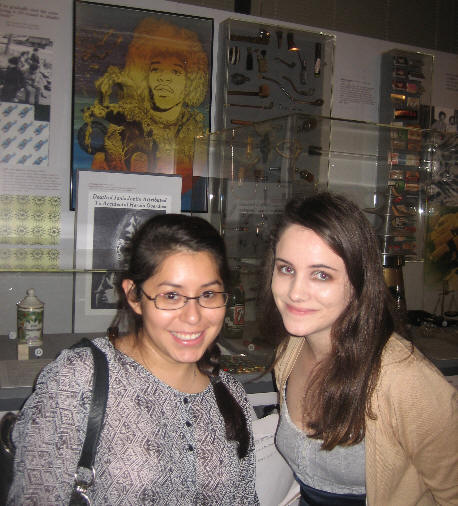
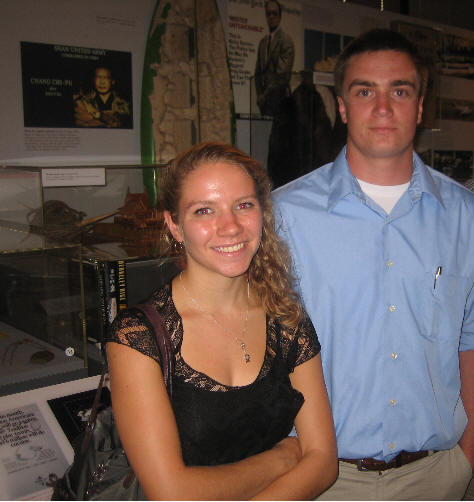
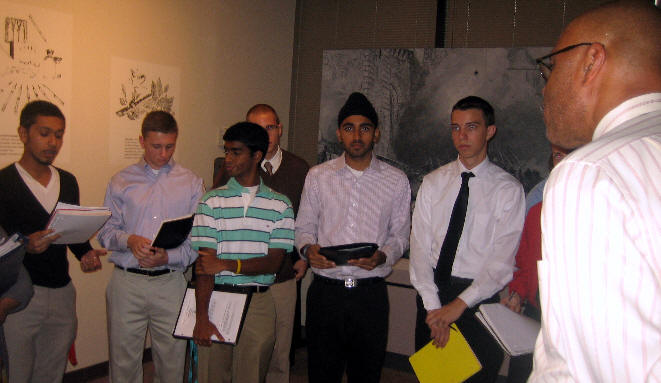
Azraf (left)- There are 26 DEA Divisions in the U.S. While you work with local law enforcement, when the DEA Division and the local police are at odds, who has the final say? ANSWER- Federal law enforcement takes priority over state and local law enforcement.
Scott (2nd from left)- What are you as the DEA doing to combat prescription drug abuse within the U.S.? ANSWER- We are cracking down on doctors and pharmacies that are contributing to the abuse, such as the one pharmacy in Florida that has distributed more oxycontin than all other distributors in the entire country.
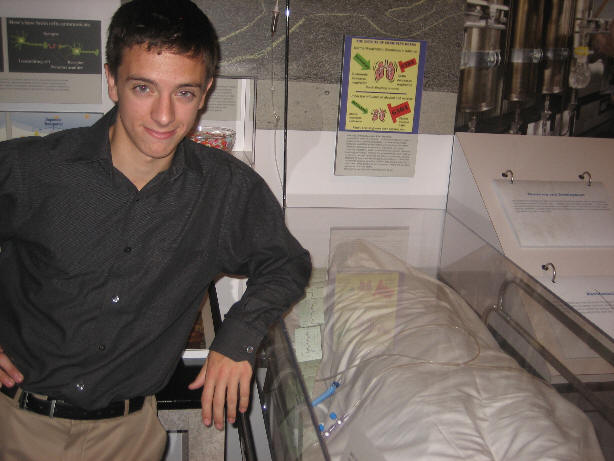
Dom- The DEA's Summary of the Top Ten Facts on Legalization states "overall drug use is down by more than 1/3 in the last 20 years." However on the National Geographic channel documentary on the history of marijuana use in the U.S. they stated teen drug use has remained the same since 1978. Is that accurate? ANSWER- There is still lighting up but there are less total users.
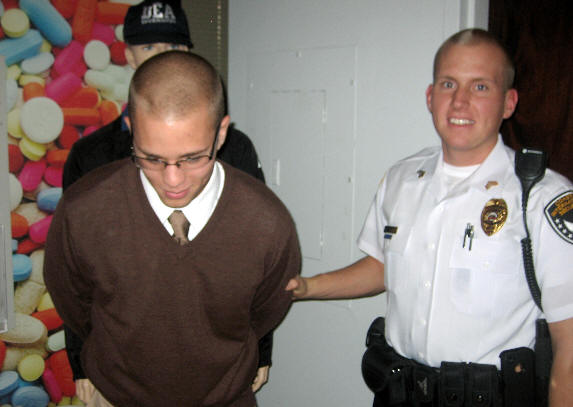
Steve- During the course of an undercover operation have you ever used narcotics? ANSWER- No. I have had a gun to my head and was told I would be shot if I didn't snort the cocaine. I refused. I told him I was a business man who didn't use drugs.
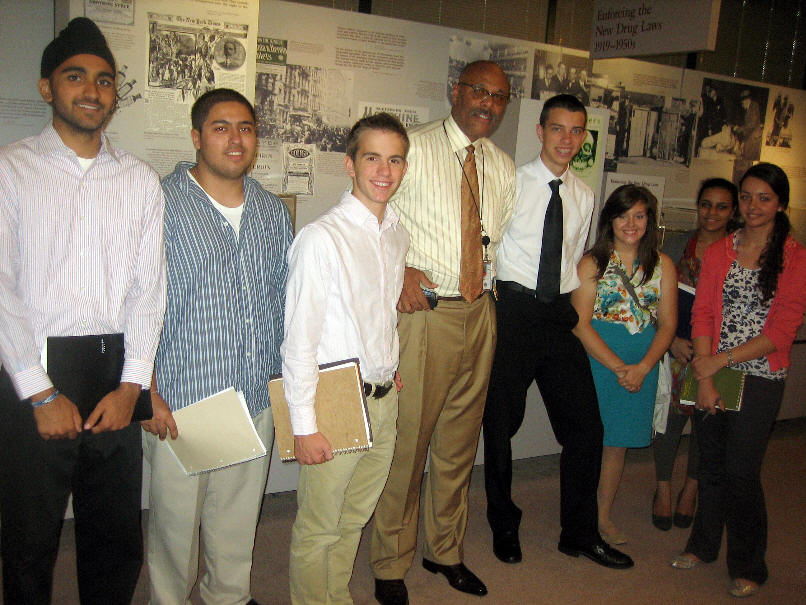
Jacob (3rd from left)- How does the DEA dispose of drugs? Does the waste affect the environment? ANSWER- The drugs are put into a furnace and burned down to a pulp. The smoke turns into steam.
Kris (left of Mr. Jones)- If you were to be a lookout for drug dealers at our border, would that be illegal? ANSWER- Yes, it is illegal because you're aiding a felony.
